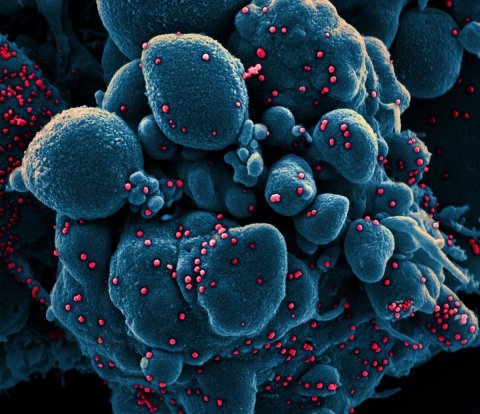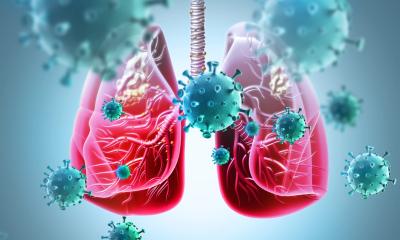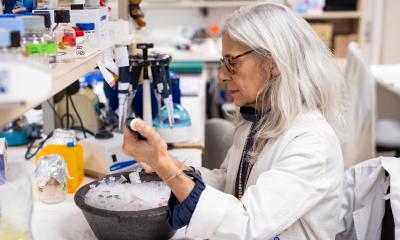News • COVID-19
Scientists uncover SARSCoV-2-specific T cell immunity in recovered patients
The T cells, along with antibodies, are an integral part of the human immune response against viral infections due to their ability to directly target and kill infected cells. A Singapore study has uncovered the presence of virus-specific T cell immunity in people who recovered from COVID-19 and SARS, as well as some healthy study subjects who had never been infected by either virus.

The study by scientists from Duke-NUS Medical School, in close collaboration with the National University of Singapore's (NUS) Yong Loo Lin School of Medicine, (YLLSM), Singapore General Hospital (SGH) and National Centre for Infectious Diseases (NCID) was published in Nature. The findings suggest infection and exposure to coronaviruses induces long-lasting memory T cells, which could help in the management of the current pandemic and in vaccine development against COVID-19.
The team tested subjects who recovered from COVID-19 and found the presence of SARS-CoV-2-specific T cells in all of them, which suggests that T cells play an important role in this infection. Importantly, the team showed that patients who recovered from SARS 17 years ago after the 2003 outbreak, still possess virus-specific memory T cells and displayed cross-immunity to SARS-CoV-2.
"Our team also tested uninfected healthy individuals and found SARS-CoV-2-specific T cells in more than 50 percent of them. This could be due to cross-reactive immunity obtained from exposure to other coronaviruses, such as those causing the common cold, or presently unknown animal coronaviruses. It is important to understand if this could explain why some individuals are able to better control the infection," said Professor Antonio Bertoletti, from Duke-NUS' Emerging Infectious Diseases (EID) programme, who is the corresponding author of this study.
Associate Professor Tan Yee Joo from the Department of Microbiology and Immunology at NUS Yong Loo Lin School of Medicine and Joint Senior Principal Investigator, Institute of Molecular and Cell Biology, A*STAR added, "We have also initiated follow-up studies on the COVID-19 recovered patients, to determine if their immunity as shown in their T cells persists over an extended period of time. This is very important for vaccine development and to answer the question about reinfection."
"While there have been many studies about SARS-CoV-2, there is still a lot we don't understand about the virus yet. What we do know is that T cells play an important role in the immune response against viral infections and should be assessed for their role in combating SARS-CoV-2, which has affected many people worldwide. Hopefully, our discovery will bring us a step closer to creating an effective vaccine," said Associate Professor Jenny Low, Senior Consultant, Department of Infectious Diseases, SGH, and Duke-NUS' EID programme.
"NCID was heartened by the tremendous support we received from many previous SARS patients for this study. Their contributions, 17 years after they were originally infected, helped us understand mechanisms for lasting immunity to SARS-like viruses, and their implications for developing better vaccines against COVID-19 and related viruses," said Dr Mark Chen I-Cheng, Head of the NCID Research Office.
The team will be conducting a larger study of exposed, uninfected subjects to examine whether T cells can protect against COVID-19 infection or alter the course of infection. They will also be exploring the potential therapeutic use of SARS-CoV-2-specific T cells.
Source: Duke-NUS Medical School
18.07.2020











